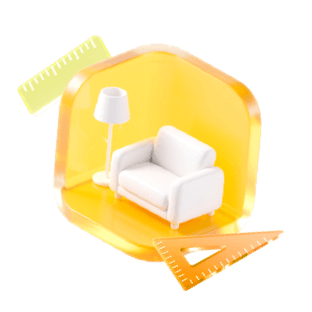Are you prepared to enhance your 3D projects using advanced techniques from Cinema 4D rendering? The rendering process in Cinema 4D is vital for bringing your 3D creations to life, producing impressive visuals that can truly engage your viewers. In this comprehensive guide, we'll delve into a variety of rendering methods, essential settings, and practical advice that will help you unlock the full potential of your designs, including how Homestyler can complement your workflow.
Comprehending Rendering in Cinema 4D
Rendering refers to the method of creating a 2D image from 3D models. Within Cinema 4D, there are multiple rendering options, such as the standard renderer, the physical renderer, and integrated third-party rendering engines like Redshift and Octane. Each of these options boasts unique features that can benefit your projects, so grasping their differences will guide you in selecting the most appropriate renderer for your needs.
Essential Rendering Settings
To effectively render your scene, it's critical to configure your settings accurately. Here are several key settings to focus on during this phase:
Lighting Techniques for Enhanced Rendering Quality
Lighting is crucial to the rendering experience. Utilize these methods to improve the overall quality of your scene:
Tips for Post-Processing
Once you've completed the rendering, take some time for post-processing to elevate the final image quality. Applications like Adobe After Effects or Photoshop are excellent tools for tasks such as color correction, applying special effects, and adding finishing touches—all of which can enhance your images, aligning perfectly with the design capabilities found in Homestyler.
Final Thoughts
With the appropriate techniques and settings, rendering in Cinema 4D can lead to stunning outcomes. Experiment with various configurations and discover what resonates best with your artistic style and project objectives. Enjoy your rendering journey!
Frequently Asked Questions
Q: Which renderer is the best choice for Cinema 4D? A: Your choice should depend on your specific project requirements. The Physical Renderer is ideal for achieving realistic results, while third-party alternatives like Redshift are known for their efficiency.
Q: What strategies can I use to shorten render times? A: Streamline your scene by lowering polygon counts, opting for lower resolution textures, and fine-tuning your render settings to expedite the process.
Discover the leading Home Design Software available.



























































